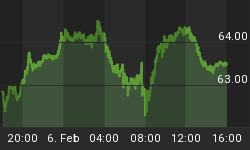Chile's accession to the Organization of Economic Cooperation and Development in 2010 was more than just a confirmation that they'd earned the right to join the world's top ranked economies. As the first South American country to be accepted into the OECD, it was also a symbolic affirmation of several decades worth of market-oriented reforms that transformed the country from an illiberal backwater to what is arguably one of Latin America's most stable and thriving nations. As a result, we feel that Chile qualifies as a good choice for international investment (for other investment locales that we have our eye on, see the latest Euro Pacific Global Investor Newsletter).
Since 1983 Chile has had an enviable average annual growth in per capita output of 4.0%. Today they lead Latin America on a whole range of economic metrics: income per capita, competitiveness, and human development to name a few. But things weren't always like this. Forty years ago, Chile was in shambles. The Marxist programs of Salvador Allende had created a basket-case economy - GDP was falling, inflation was running in the triple digits, Chile had no foreign reserves, and price controls, tariffs, subsidies and property expropriations were rife. Although it was not a victory for personal freedom, Augosto Pinochet's 1973 military coup resulted in a raft of market-oriented reforms to liberalize the economy.
Sebastián Piñera, the 62-year-old billionaire businessman who was elected president in 2010, had signaled his desire to continue the policies that are responsible for Chile's economic growth. Piñera is Chile's first right-wing president since Pinochet left office in 1990 (although the nominally left-wing interim leadership also continued free market reforms). He was quoted recently as saying that, "We don't want to put at risk everything we've done up to now... Take a look at European countries, that's the path that we do not want to follow."
There are numerous factors as to why Chile may be a wise investment destination. The Heritage Foundation's 2012 Index of Economic Freedom lists Chile as number 7 in the world, noting that, "Chile continues to be a global leader in economic freedom." Unlike many other South American and European countries in recent times Chilean public debt and recent budget deficits have been kept in check (for a contrast see Peter Schiff's article "The Real Fiscal Cliff" in the latest edition of the Euro Pacific Global Investor Newsletter). Heritage also notes that, "with a transparent and stable business climate, the country has created a dynamic environment for entrepreneurs."
One of the pillars of the Chilean economy is the mining industry. Amongst other minerals, its copper reserves are the largest in the world and today copper exports alone account for more than one third of the government's income. Because of a desirable regulatory environment that includes treating foreign investors the same as Chileans, foreign direct investment has been forthcoming. In recent years Chile has also signed a significant number of free trade agreements with countries all around the world. The Santiago Stock Exchange is Chile's primary stock exchange, but many of the most successful companies also trade on the NYSE.
Although we're optimistic on Chile, it should be noted that over the last several years there have been some growing domestic concerns, particularly as they relate to income inequality and education reform. Led by the fiery and photogenic 23-year-old communist Camila Vallejo, students have staged protests and labor strikes across the country. This has recently sent Piñera's approval rating plummeting to 24 percent in April - the lowest level of any president since 1990. Although more recent polls have improved somewhat, it remains to be seen whether Piñera can hold his ground. Chile may continue on the path of favorable economic reform, or it may cave to the left and adopt the debt and dependency policies that are now causing so many problems for EU nations and the United States. We remain confident in Chile as an investment destination (and it is well represented in our branded products), but we are vigilant to breaking developments.
Subscribe to Euro Pacific's Weekly Digest: Receive all commentaries by Peter Schiff, John Browne, and other Euro Pacific commentators delivered to your inbox every Monday!
Order a copy of Peter Schiff's new book, The Real Crash: America's Coming Bankruptcy - How to Save Yourself and Your Country, and save yourself 35% off!















